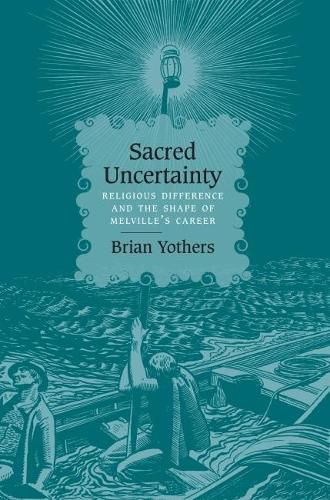Readings Newsletter
Become a Readings Member to make your shopping experience even easier.
Sign in or sign up for free!
You’re not far away from qualifying for FREE standard shipping within Australia
You’ve qualified for FREE standard shipping within Australia
The cart is loading…






Herman Melville’s oeuvre sustains a fundamental tension among self, society, and others. Sacred Uncertainty explores religious difference that arises from these many voices, both within American culture and around the world. Melville’s work is notably shot through with allusions to other writers and thinkers, whom he regarded as his truest interlocutors-the figures of genius from whom he received, as he eloquently stated it in Hawthorne and His Mosses, a shock of recognition. There is almost certainly no more concrete or reliable way to get at Melville’s affirmations of (and arguments with) these interlocutors than in the markings and annotations that appear in his copies of many of their works, so Yothers examines Melville’s marginalia for clues to Melville’s thinking about self, others, and difference. His interrogations yield a richer understanding of one of the more vexing aspects of the great American novelist’s work.
$9.00 standard shipping within Australia
FREE standard shipping within Australia for orders over $100.00
Express & International shipping calculated at checkout
Herman Melville’s oeuvre sustains a fundamental tension among self, society, and others. Sacred Uncertainty explores religious difference that arises from these many voices, both within American culture and around the world. Melville’s work is notably shot through with allusions to other writers and thinkers, whom he regarded as his truest interlocutors-the figures of genius from whom he received, as he eloquently stated it in Hawthorne and His Mosses, a shock of recognition. There is almost certainly no more concrete or reliable way to get at Melville’s affirmations of (and arguments with) these interlocutors than in the markings and annotations that appear in his copies of many of their works, so Yothers examines Melville’s marginalia for clues to Melville’s thinking about self, others, and difference. His interrogations yield a richer understanding of one of the more vexing aspects of the great American novelist’s work.